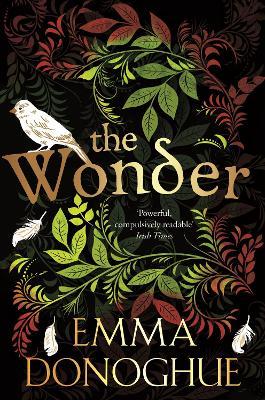
Author: E.[mma] Donoghue
Bionote: Born in Dublin, Ireland, Emma Donoghue is a novelist, a literary historian, a teacher, a playwright and a radio and film scriptwriter. Educated at University College Dublin and at Cambridge University, Donoghue relocated from Cambridge, UK, to Canada in 1998, after earning a PhD in English literature, in order to join her partner, the Women’s Studies professor and researcher Christine Roulston. In Canada, where she is raising two children with Roulston, Donoghue wrote the novel Room (2010), which was shortlisted for the Man Booker Prize, and the screenplay of the novel’s 2015 film adaptation, responsible for granting her a Canadian Screen Award and an Independent Spirit Award, along with a BAFTA and an Academy Award nominations.
Date: 2016.
Place: London
Publisher: Picador.
ISBN: 978-1-5098-2078-8.
Number of Pages: 350.
Reference: Donoghue, E.. (2016). The Wonder. London: Picador.
Genre: Neo-Victorian Novel.
Screen Adaptations: No.
Portuguese Translations: Donoghue, E.. (2017). O Prodígio (C. Ramos, trad.). Porto: Porto Editora.
Abstract
The Wonder takes place seven years after the end of the Irish Great Famine (1845-1849) and it tells the story of an English nurse trained by Florence Nightingale (1820-1910), named Elizabeth (Lib) Wright, who is hired by an Irish village committee to watch for a fortnight, day and night, Anna O’Donnell, an eleven year old girl who claims not to have eaten since her eleventh birthday, which took place four months before the beginning of the story. Accompanied by a silent nun called Sister Michael, Lib must ascertain if Anna is telling the truth or if someone is secretly feeding her. While Lib initially believes that Anna and her family are lying, somehow motivated by the deeply catholic environment in which they live and by the prospect of canonizing Anna, the nurse quickly discovers that the girl is dying of starvation and that her refusal to eat is a consequence of a profoundly traumatizing event. The novel was inspired by the several cases of “fasting girls” that were reported around the world between the sixteenth and the twentieth centuries and which often attracted the interest of doctors, scientists and clergymen.
Keywords: Victorian Era; The Great Famine; Florence Nightingale; Catholicism.ike) Collins.